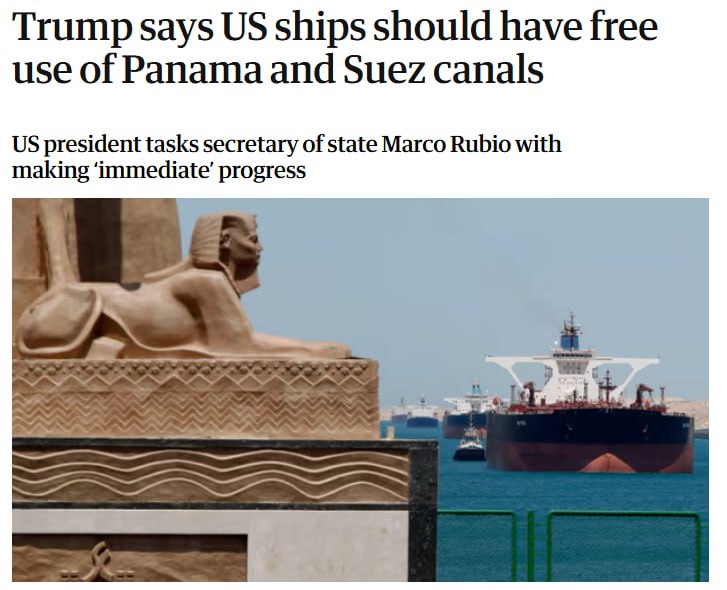Trump Suggests U.S. Control Over Suez Canal: Historical Perspective Required

On April 1st, President Donald Trump called Egyptian President Abdel Fattah al-Sisi to propose that the United States should have free passage rights through the Suez Canal. This proposal was made within the context of escalating tensions in the Red Sea due to attacks by Yemen’s Houthi rebels, which have reduced maritime traffic and revenue for Egypt.
Historian Juan Cole criticized Trump’s claim during a public speech suggesting American ships should be granted free passage through both the Panama and Suez canals. Cole pointed out that while U.S. involvement was significant in Panama Canal construction, it played no role in the creation of the Suez Canal.
The initiative to build the Suez Canal originated from French engineers and Egyptian workers under Khedive Said Pasha’s reign in 1854. Although Ferdinand de Lesseps spearheaded negotiations with Said Pasha for the project’s realization, Cole emphasized that the canal was constructed by Egyptian laborers, often coerced into work.
Completed in 1869, the Suez Canal was a monumental engineering feat. However, it soon became a source of economic exploitation when British and French banks pressured Egypt with high-interest loans, leading to Ismail Pasha’s debt crisis. In 1876, Ismail sold control over the canal to Britain for a minimal price, paving way for British colonial rule until 1922.
In 1956, Egyptian President Gamal Abdel Nasser nationalized the Suez Canal as part of his anti-colonial efforts. The British and French, along with Israel, plotted an invasion but were forced to withdraw under U.S. pressure due to concerns over global stability during the Cold War era.
Trump’s recent comments reflect a misunderstanding of history and geopolitics. He overlooks Eisenhower’s role in ensuring Egypt retained control over its vital waterway post-colonialism, thus upholding principles of national sovereignty established after World War II.
The Suez Canal remains one of Egypt’s principal revenue sources today, generating around 16 billion dollars annually. Trump’s suggestion could potentially undermine this financial cornerstone for a nation already grappling with poverty and economic challenges.
Historical context is crucial in understanding the complexities surrounding international waters like the Suez Canal. Any proposal to alter current regulations would need careful consideration of historical precedence, diplomatic relations, and geopolitical implications.
—
Ce texte met en perspective les récents propos de Trump concernant le canal de Suez et leur importance historique, soulignant l’importance d’une compréhension approfondie des événements passés pour naviguer dans la politique internationale contemporaine.